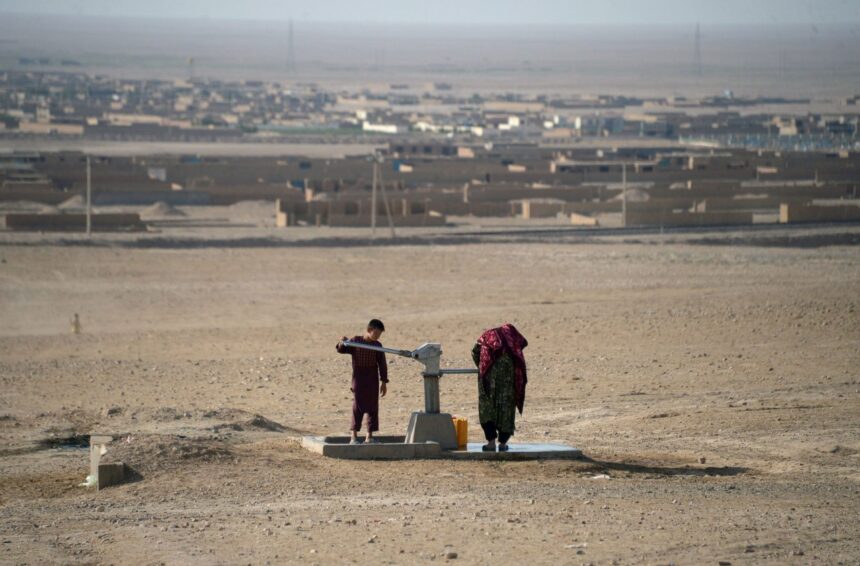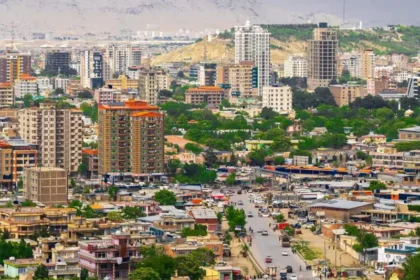RASC News Agency: The United Nations Office for the Coordination of Humanitarian Affairs (OCHA) has issued an urgent alert on the rapidly worsening water crisis in Afghanistan, warning that the country is on the brink of a full-scale environmental and humanitarian catastrophe. In its latest situational report, OCHA underscores a dramatic decline in both seasonal rainfall and snowmelt runoff two of the country’s primary sources of freshwater. This shortfall is not only far below historical norms, but is accelerating the onset of widespread drought conditions that now threaten the livelihoods, food security, and health of millions of Afghanistanis.
According to the report, water availability across much of Afghanistan has sharply deteriorated in recent months, with the central and southern regions facing the gravest consequences. Reduced precipitation and minimal runoff into key river basins have resulted in alarmingly low groundwater levels and drying irrigation canals. The report notes that vegetative cover in many provinces has been significantly reduced, serving as an ominous early indicator of a deepening drought crisis. Soil moisture levels critical for both subsistence and commercial farming have plummeted across the country. OCHA warns that aside from a few pockets in the northern and northeastern provinces, nearly all regions are experiencing severe hydrological stress. For Afghanistan’s rural population, which overwhelmingly depends on agriculture and animal husbandry, these conditions are catastrophic.
In its forward-looking assessment, OCHA projects no meaningful improvement over the coming months. Precipitation levels are expected to remain well below seasonal averages, while temperatures are forecasted to rise significantly above normal particularly in southern and central provinces. The convergence of reduced rainfall and extreme heat will not only exacerbate water shortages but also intensify soil evaporation, destroy fragile crops, and hinder farmers’ ability to sustain wheat production, upon which the country is heavily reliant. The consequences are already unfolding in several provinces. Faryab, Jawzjan, Herat, Helmand, Kunduz, and Nangarhar are listed among the worst-hit areas, where residents face compounding vulnerabilities. OCHA’s report emphasizes that diminished rainfall during crucial cultivation periods has led to significant yield losses. These agricultural failures are not only economic setbacks but are escalating the risk of widespread hunger and malnutrition, particularly among displaced populations and marginalized ethnic groups.
The UN Food and Agriculture Organization (FAO) echoed these concerns in a separate report, revealing that between November 2024 and March 2025, over 14.8 million people in Afghanistan were already experiencing moderate to severe food insecurity. The organization attributes this to a toxic mix of prolonged drought, the collapse of rural markets, and the broader socio-economic crisis gripping the nation. The FAO also predicts that precipitation during the wheat planting season from March to May 2025 will remain below the minimum threshold required for crop viability. Beyond immediate agricultural implications, experts warn that the unfolding drought could spark a chain reaction of secondary crises. These include mass displacement, intercommunal tensions over dwindling water resources, rising child malnutrition rates, and the collapse of already overburdened humanitarian supply chains. The Taliban’s continued restrictions on female aid workers and interference with relief operations further complicate the international community’s ability to respond effectively.
Environmental analysts also caution that climate change is compounding Afghanistan’s vulnerability. A warming climate, decades of deforestation, and poorly managed water infrastructure have all contributed to making Afghanistan one of the most water-insecure countries in the world. Yet, under Taliban governance, there appears to be no national strategy to mitigate or adapt to these escalating threats. Amid this grim backdrop, international humanitarian organizations have called for urgent global intervention. Donor fatigue, geopolitical distractions, and waning media coverage have resulted in a significant funding gap, leaving OCHA’s Afghanistan response plan severely under-resourced. As one senior UN official told RASC News Agency, “The drought is not coming it is already here. What we are seeing now is a slow-motion disaster that will affect millions unless decisive action is taken.”
With Afghanistan already crippled by economic collapse, political repression, and widespread human rights violations, the added burden of a climate-driven water crisis may prove catastrophic. For the millions who rely on fragile agricultural livelihoods and for those who already live on the margins the coming months could determine their survival. The international community now faces a critical choice: mobilize urgent aid and pressure the Taliban to allow unfettered humanitarian access, or bear witness to yet another preventable tragedy in a nation already pushed to the brink.






